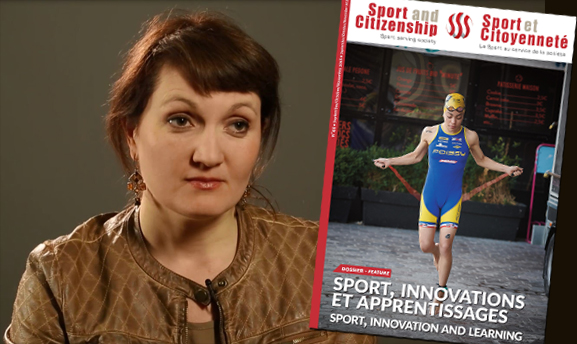Putting sport at the heart of the skilled society

Marie-Cécile Naves, Head of studies, Sport and Citizenship Think Tank
Changes in jobs and the world of work due to digital progress and the changing place of leisure in our daily lives encourage us to reconsider the role sport can play in education, training throughout our lives and the acquisition and recognition of skills.
Structurally, the economic field is faced with challenges on an unprecedented scale, partly because of the increasing role of digital technologies, personal data and artificial intelligence. Education and training are inevitably affected by this, without having really foreseen it. Nowadays teaching and learning are not the same as they were 20 years ago, let alone 50 years ago. The multitude of facts and information available, and the need to prioritise, source and appropriate them, require not only autonomy in our relationship with knowledge, but also the capacity to cooperate in new ways with other people – learners, colleagues, friends, family and so on.
However, even if creativity, empathy, emotional intelligence, initiative, self-confidence and trust, stress management or curiosity and open-mindedness may be seen as advantages in job interviews or promotion, they do not yet lead to a qualification, that holy grail of any French jobseeker. Yet these are real skills, which are obviously not innate, they need to be acquired, but they are not formally recognized at school, in further education or in the workplace.
Now, we still underestimate the speed at which occupations are changing. Over the medium or even short term, artificial intelligence will have replaced a large number of jobs, given that new skills, qualified as “soft” or “smart”, are overtaking purely technical skills. This is not restricted to so-called manual occupations: doctors, lawyers, solicitors, teachers and trainers and shopkeepers can potentially be partly or wholly replaced by machines. Machines are already capable of processing and returning data at speeds which we humans cannot hope to equal.
That is why we need to be increasingly able to take on new skills, and also to be aware and make others aware that we possess them. This means that it is important for employers and recruiters, public and private, to recognize and value these skills throughout our career. In order for this to happen, it is useless and dangerous simply to rely on individual responsibility. There would be ever deepening inequality and many people would be left behind, which would result in a social and human economic cost that would be harmful for the community and intolerable in a democracy.
Schemes need to be developed in the form of a “public service for the learning society”, to support each person all through a course of training or the course of their life. The schemes will be innovative in as far as they will be participative and will call on contributions from multi-disciplinary research. “Labs for tomorrow’s jobs”, open to all, inspired by art, sport and science, keen to experiment, aimed at everyone and all age groups, could spring up all over the country. The target of this particular form of third places in the learning society, which already exist, would be to de-compartmentalise knowledge, because we have everything to learn from others.
Sport deserves particular attention. People who do a physical activity or sport regularly have a lot to impart to people who are inactive, about their motivation and difficulties: a healthy lifestyle, health and well-being, taking care of oneself, time management, training techniques, and respect and care for personal fitness are all acquired skills which could benefit other people. For their part, volunteers in sport, the second biggest voluntary sector in Europe in terms of numbers involved, can acquire and consolidate skills in budgeting, organisation, communication, public relations, and team management which merit being recognized so that they can be transferred in the context of training, returning to work or exercising a profession.
In France and in Europe, organizing major international sporting events provides a unique opportunity for raising the general question of the social legacy of these competitions, not only in the run-up to a competition, but afterwards over the long term. These events make it possible to “see sport beyond sport”. For politicians, putting sport, a transpartisan and transversal subject if ever there was one, on the agenda is a way of breaking with compartmentalized public action. This is vital in the education and training sector.
To define objectives of redistribution and recognition in sport and through sport, its governance needs to be stronger and more flexible, and the results of university research need to be used to help make science a tool for decision-making. We are not all equal before initial and continuous training, access to knowledge, or the necessary adaptation to technological and economic changes. Sport can be seen as a particularly fertile ground for reflection and inspiration, where the researcher, the decision-maker and the athlete can dig together. If such determination exists, politicians can take action to make sport a beneficial lever for social change, in the service of emancipation and solidarity. This means it is also a civic project.










 MEMBERSHIP
MEMBERSHIP CONTACT
CONTACT FACEBOOK
FACEBOOK